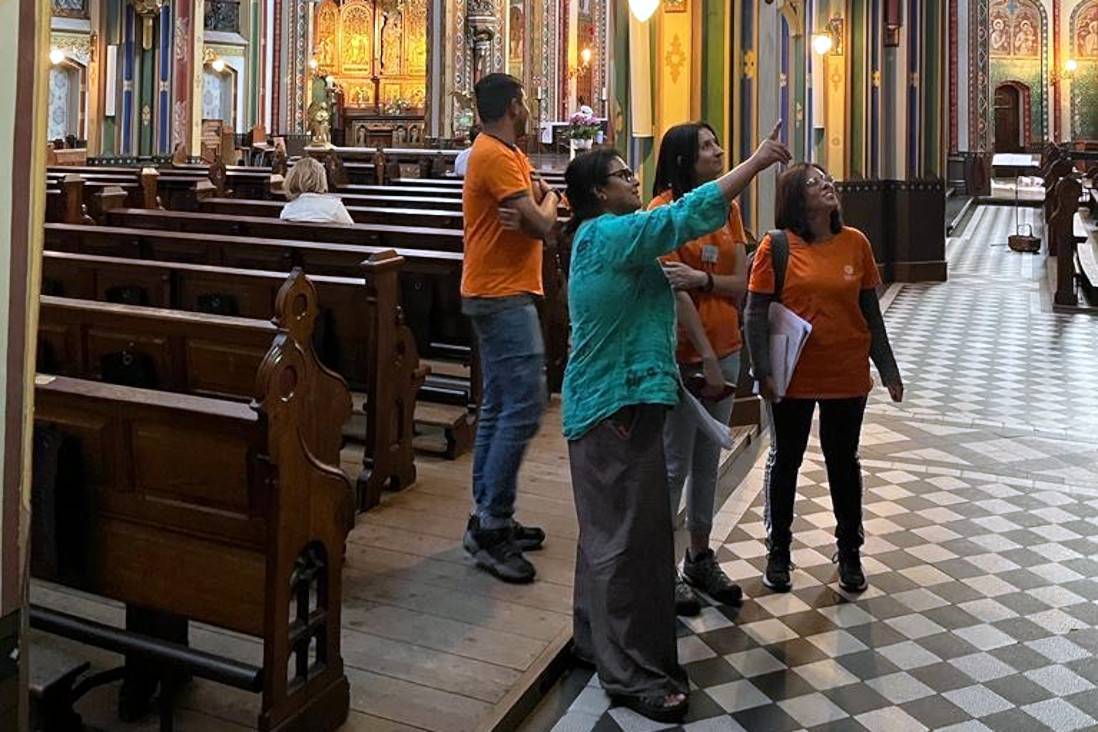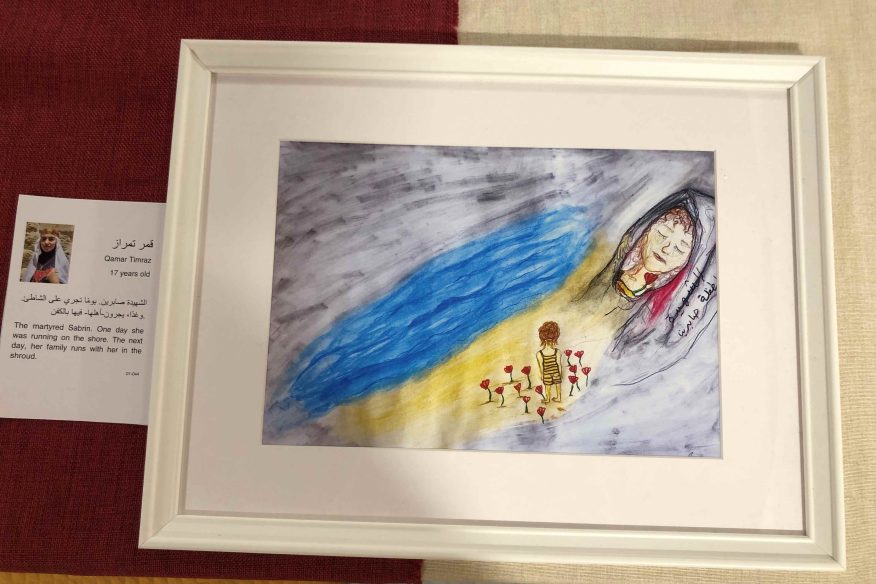Living Stones in Amsterdam: A Taste of the Beginnings

Four groups of volunteers (Europeans and Americans) took care of most of the summer in the ‘Living Stones’ camp in Amsterdam. The location was the Jesuit church ‘Krijtberg’, in the most touristic area of the city. The ‘mission in Amsterdam’ is one of six international summer projects of Living Stones in 2023 (along with Greece, Portugal, Switzerland, Berlin, Santiago). But “doing Living Stones” in Amsterdam is … “a little” different.
First of all because of the unusual sociology of the visitors welcomed by the volunteers: many Muslims explicitly intrigued by the figure of Christ, many couples who come to the various lgbtq+ initiatives the city offers, many Dutch people who have never heard of anything like the Christian faith existing, a large number of Israeli tourists, and many 19-year-olds from all over Europe who make Amsterdam an obligatory stop on their backpacking trip across Europe.
This summer evangelising experience in Amsterdam is also unique because it relies on the year-round presence of the residential community ‘Living Stones’. In a house provided by the Dutch Jesuits, between 7 and 9 young adults from different countries combine formation and evangelisation within the 9 month period of community life. The first year of this ‘pilot project’ has just ended and a new group is being formed to start the second one in September. In its hardships and surprises, this sort of “lay novitiate” for Ignatian apostles has often had the flavour of the Acts of the Apostles.
Indeed, the annual and summer service of Living Stones in Amsterdam allowed many volunteers to touch the roots of the proclamation of faith, with their own hands.
Firstly, they discovered that the proclamation has an almost ‘exorcistic’ dimension. Young volunteers of Living Stones often find themselves being “vomited in the face” by many of the internal blocks and wounds that the visitor has accumulated for years against the Church, faith, or life. This venting is possible because ‘finally’ someone listens to them in the Church. The ‘Living Stones’ service, before being a kerygmatic explanation of the works of art in a church, is an activity of deep listening, of unconditional acceptance.
But the great thing is that every volunteer has a sense of receiving “the very visitors they needed” everyday. So a period of summer service at Living Stones can be seen as a time of spiritual exercises. The hour of biblical meditation that opens the day is just a “preparatory prayer” for the many other words and thoughts that the volunteer will receive from the visitors and which they will recognise in the evening re-reading as “God’s words to me”.
Finally, each visit led by a volunteer becomes a ‘theological exercise’: the tourists’ questions and reactions force them to constantly reformulate their faith. Faith “received” from the Great Biblical and Sacramental Tradition present in art, re-read at each encounter in an “ancient and ever new” way. This is perhaps not far from what academic theology has long hoped for whenever it strives to connect more to prayer and proclamation. It is certainly an experience that frees the young believer from the fear of simply ‘thinking the faith’ and ‘speaking the faith’.
